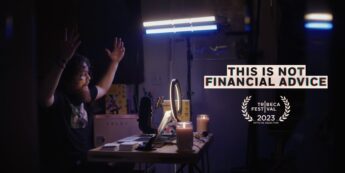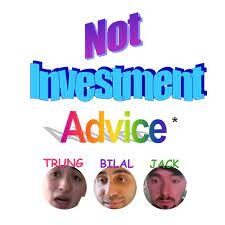If you haven’t heard about NFTs (non-fungible tokens) yet, you certainly will soon. There’s a chance you’ve heard of them and just don’t know it yet–if you have sports fans in your family, maybe you’ve heard of NBA Top Shots. These collectibles are the modern-day/future version of sporting cards; if you haven’t seen what’s going on with sporting cards over the last year, it’s been bonkers–that’s another post for another day.
This post isn’t an introduction to NFTs. If you need an intro, you can read one of my favorite posts on the subject here. Instead, this is a caution post about the current activity we’re seeing in the NFT space.
I am in the camp NFTs provide tons of opportunities to artists, musicians, and creators and they will provide unique experiences for fans and collectors, along with more access to investors–I don’t see them going anywhere. In fact, I’ve purchased a few Top Shots for the boys and have spent more time than I’d like to admit on Rarible, a digital marketplace. But prices currently being seen and the flood of projects to the marketplace, lead me to believe there will be many upset and scarred investors when this first wave crashes–think bitcoin in 2017 and 2018. Note: I’m not making any predictions here, just sharing my thought that before NFTs gain acceptance by the masses there will be a cleansing of the “junk” that makes it first to market. But just like bitcoin, I believe the NFT market will recover and rise with more viability and trust.
Just like I did in 2017, before the great crypto run-up in the fall, I’m spending time learning how to purchase, how to store, how to create, how to sell, and other important details to be able to speak intelligently with clients and help them avoid making costly mistakes–I don’t see NFTs making their way into client portfolios yet, but I can see it in the future.
My homework brings me to another caution.
If you find your financial advisor immediately dismissing NFTs and calling them the next Beanie Baby, I’d encourage you to challenge them as to why they are dismissing the possibilities for NFTs and the supporting technology so early in the game. Stereotypically, we financial advisors distrust new opportunities–as we should. We are paid and have the responsibility of keeping our clients from making bad financial decisions. But instead of being dismissive, financial advisors should be cautious, avoid rushing into new technologies, and scrutinizing new investment opportunities for our clients, while remaining inquisitive and open to improvements to the way our profession has worked in the past.
I’d be wary of a financial advisor pushing NFTs today, and I’d be just as wary of a financial advisor dismissing NFTs without acknowledging the possibilities in the future. NFTs may not be right today, but that doesn’t mean financial advisors should not learn about them and stay on top of new trends.
In a few years, I’ll be able to repost this and swap out NFTs with whatever the new technology is. There will always be new opportunities and many of them will not be a fit within a diversified portfolio, but financial advisors should be doing due diligence and not just writing them off because they are “new” or “a fad” or they just don’t understand.
I write a newsletter for financial advisors every Monday and I thought I’d share today’s email to highlight why financial advisors shouldn’t ignore new trends–it could end up costing their clients (aka you) in the long run.
The Stories We Tell Ourselves (The Advisor Of Tomorrow Newsletter 3/8/2021)
“I promise The Advisor Of Tomorrow is not going to become a crypto and NFT-focused newsletter, but given my interest is in helping advisors (and myself) be prepared for the future of financial planning, there will be crypto and NFTs in the mix.
Last week I shared a primer of the NFT market and things in the NFT world continue to heat up. I have no doubt many, potentially most, of what is taking place right now will end up ugly for many investors—I’ve spent a lot of time looking for my first NFT to purchase to learn more about the process, but the prices on the most basic pieces of digital art are too much for an experimental purchase.
Despite the current NFT market looking bubblicious, I do not think they are going anywhere and I do believe they will be impactful to musicians, artists, and creators. As I mentioned last week, I think we do our clients a disservice by dismissing the technology and the market for NFTs.
Some of the stories I see being told remind me of when I was first exposed to ETFs.
The financial advisor I worked for believed ETFs would be the cause of the next financial disaster. She’d told herself a story that the “new” vehicles were dangerous, illiquid, and a bomb just waiting to go off. I could not convince her (I also wore the hat of the investment analyst) that ETFs were in fact viable and for her HNW clients were more advantageous due to the tax benefits, not to mention the lower fees than the A shares they were sitting in. She believed in her story so strongly she would not take more time to learn about the facts of ETFs, which could have altered her view and ultimately saved clients on fees and taxes.
My former boss is a great advisor but fell victim to a story she had told herself and missed out on an opportunity to improve her clients’ financial plans—I have no idea if she ever warmed up to ETFs and despite her love of the higher-priced mutual funds, her clients were all living great lives and reaching their goals.
We have to be cautious as financial advisors, especially when it comes to new technologies and investment options for our clients—our job is to make sure they don’t make bad decisions and blow their goals up. This is why I’m not in any rush to encourage my clients to go out and start investing in NFTs.
But, I’m not going to tell myself a story that I do not know is true.
I’m aware my belief that NFTs will stick around is a story I could fall victim to but I use this awareness not to get too excited as I watch the real story unfold.
We don’t know how the NFT market (or crypto, or whatever the next “thing” might be) will turn out. NFTs could end up being everything the early adopters believe it will be or they could just be something artists, musicians, and creatives use to complement the traditional distribution of their work.
Last week, Kings Of Leon released an album via NFT.
Last night, Jack Butcher sold a NFT for over $58,000.
Will it last? Who knows.
But be careful not to write the end of the story when it’s just the introduction.”
Disclaimer: Nothing on this blog should be considered advice, or recommendations. If you have questions pertaining to your individual situation you should consult your financial advisor. For all of the disclaimers, please see my disclaimers page.



